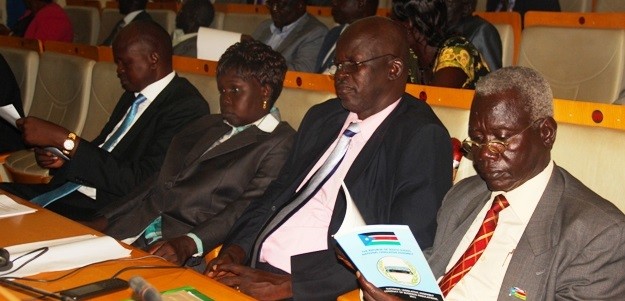The version of the Constitutional Amendment Bill 2015 passed in parliament on Tuesday is not the same as the version introduced in February, according to lawmakers. It was also passed during a joint session and not in separate sessions of the two parliament houses.
More than two-thirds of MPs voted to approve the bill extending the tenure of the current government. About 226 or 227 members of the lower house – the National Assembly – voted in favor of the bill, making for a majority of about 73%, while 37 of 50 members of the upper house – the Council of States – supported the bill, satisfying the requirements for quorum and for a two-thirds majority.
But the bill differs from the draft amendment approved by the Council of Ministers last month and introduced in parliament in an extraordinary session on 19 February. That bill proposed to extend the term of the president and MPs by two years, until July 2017.
Parliament waited more than one month to deliberate the bill because Article 197 of the constitution requires that parliament wait one month after the introduction of any proposed constitutional amendment, in order to allow time for popular consultation and public debate.
According to Minister of Information Michael Makuei, the bill passed by parliament yesterday is not the same as the one introduced a month ago. It extends the term of the president and MPs by three years, until July 2018.
Speaking to press at the parliament yesterday, Makuei was asked by a journalist about the difference between the two bills. Makuei confirmed that the cabinet’s version of the bill had said only 2017, “But the parliament on its own decided to extend the term longer than that.”
The change was introduced yesterday and not a month ago. Speaking in parliament, MP Deng Dau Deng (SPLM, Twic East) moved to increase the extension period from two to three years.
“Having gone through the document, I want to come up with some proposals. One – with regard to the issue of tenure of the office of the president and the national legislature I suggest that we go for 36 months,” he said.
This change was proposed and adopted on the same day.
Lam Akol, head of the opposition SPLM-DC party, commented that the bill was passed with extraordinary haste. “Juba parliament has today set a legislative precedent of carrying out the 2nd, 3rd and 4th readings of a Bill in one sitting!” he wrote on the social networking site Twitter.
Members of Lam’s SPLM-DC party were among six parliamentarians to vote against the bill.
‘Sitting separately’
The parliamentary sitting yesterday was unusual in another respect. Reporters who witnessed it said that members of both the Council of States and National Assembly were present in a single joint sitting.
In other words, the two houses of parliament were sitting jointly.
Article 197 of the Transitional Constitution of 2011 says that constitutional amendments must be approved by each houses of the parliament “sitting separately.” The article explains the correct procedures for amending the constitution.
‘The country is at war’
Speaking after the vote on Tuesday, MPs who supported the bill said that the constitutional amendment was necessary in view of the continuing war and the impracticality of holding elections.
MP Agany Deng Kawac (SPLM, Aweil East) said, “We call on our people to support this historic decision on their behalf. They know the situation which the country is undergoing. The country is passing through difficult moment of senseless and destructive war.”
As to the change from two years to three years extension, Agany said that it was meant to give the government more time to prepare for peace. “The path of truth is never easy and it is never smooth. It is filled with zigzags and difficulties but I hope our people will see the light at the end of the day,” he said.
Another supporter of the bill, MP Charles Majak (SPLM, Twic West), argued that the bill gives the government more time to restore peace before holding elections. “You know that the country is at war, which makes it difficult to conduct elections so that people can make their own choice in the elections and for peaceful transfer of power to take place.”
For his part, Minister of Information Michael Makuei said, “Now the parliament has spoken – not that only that they have extended the lifespan as requested but they decided to make it instead of two years they decided to make it three years.”
“This does not mean that this is the end of the game. The government of the Republic of South Sudan will continue to negotiate peace, and as soon as peace is reached, then this constitution will again be amended in accordance with the provisions of the peace agreement.”
“From now onwards we will continue to negotiate… without any disturbance without any interruption without anybody patting our back and saying you are running out of time,” said Makuei.
File photo: MPs at the parliament deliberations to amend the constitution, 24 March 2015




